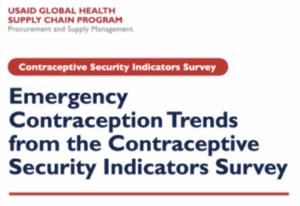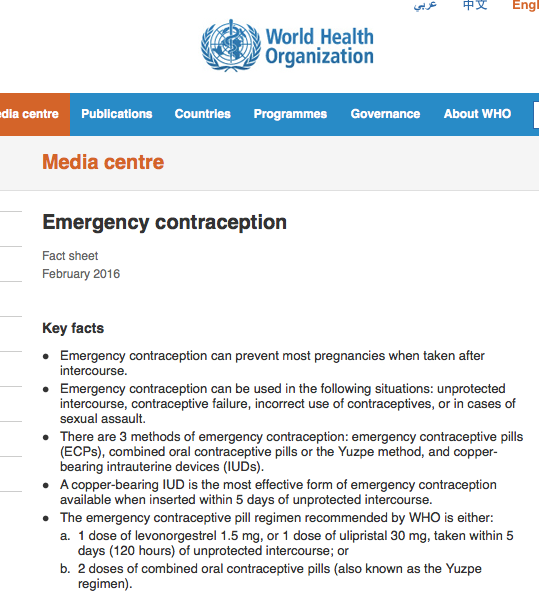Similar Posts
Spanish National Health Service fails to fund EC
It was recently reported that the Spanish National Health Service (NHS) does not fund EC nor does it reimburse patients who purchase EC. Furthermore, EC availability is dependent on the regions within Spain, and it is not universally available throughout the country. This issue was raised by Grupo Parlamentario de Unión Progreso y Democracia (UPyD),…
Perceptions of EC in France Among Women and Gynecologists
In 2012, HRA Pharma and the BVA Institute conducted a survey among a representative sample of 2,500 women aged 16-45 on their perceptions of EC. The survey found that among women who reported having unprotected or inadequately protected intercourse, only 20% used EC, due mainly to an underestimation of the risk of pregnancy. This survey…
Medicines Authority recommends OTC sale of EC in Malta
On October 17th, 2016, the head of the Malta Medicines Authority, Serracino Inglott, announced that the sale of EC pills will be allowed without a prescription. According to an article from Times of Malta: “The authority has always based its decisions on three things; quality, safety of patients and efficacy. By asking patients to go to doctors…

New data on EC provision in 42 countries
March 2023. Since 2010, USAID Global Health Supply Chain Program – Procurement and Supply Management (GHSC-PSM), collects data on national contraceptive security policies. In collaboration with ECEC and ICEC, GHSC-PSM just published a brief that highlights trends and recent findings from survey data specific to emergency contraceptive pills (ECPs), including: The data shows that overall,…
Italy: women under 18 no longer need a prescription to buy UPA EC
October 2020. On October 8th the Italian Medicines Agency (AIFA) reclassified ulipistral acetate (UPA) EC pill EllaOne to “non-prescription but non-over-the-counter medicinal product” (Resolution no. 998). To date, women under 18 needed a medical prescritpion, prior to purchasing UPA ECPs at the pharmacy. According to AIFA’s statment, this measure aims to further protect the physical and psychological health of adolescents, and…
European Contraception Policy Atlas 2020
November 2020. The European Parliamentary Forum for Sexual and Reproductive Rights launched the 4th edition of the European Contraception Policy Atlas on November 12th. The map scores 46 countries throughout Europe on access to modern contraception. Some of this year’s findings are the following: • Access to modern, effective and affordable contraception remains a challenge…
